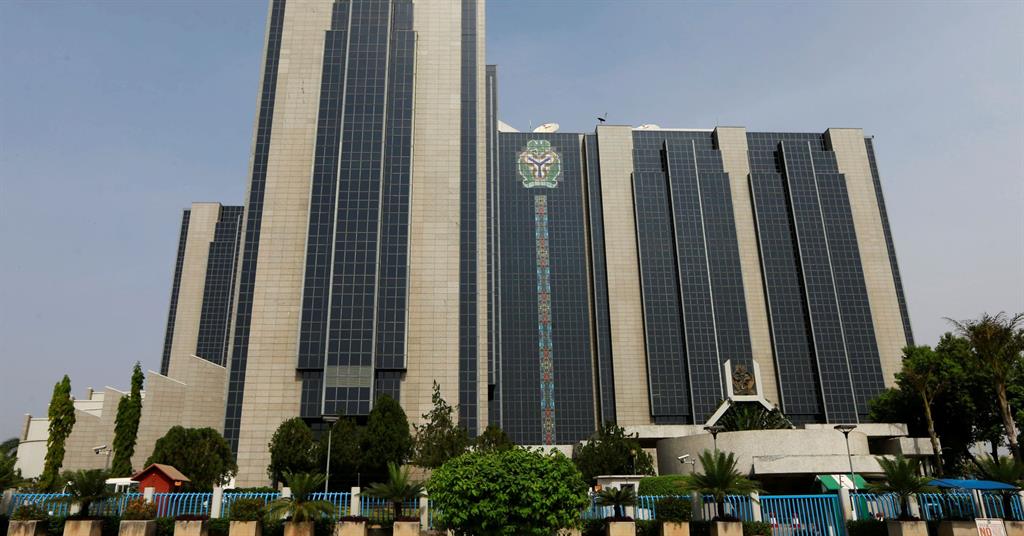African central banks to hold rates steady
Ghana, Kenya and Nigeria were forecast to keep benchmark rates unchanged at 13.5%, 7.0% and 11.5%, respectively.
VUYANI NDABA
Major sub-Saharan African central banks are expected to keep interest rates on hold this week as the region's recovery lags the rest of the world due to much slower Covid-19 vaccination rollouts, a Reuters poll found on Monday.
In a poll conducted last week, central banks in Ghana, Kenya and Nigeria were forecast to keep benchmark rates unchanged at 13.5%, 7.0% and 11.5%, respectively, like continental peer South Africa did just days ago.
"The Bank of Ghana already surprised with its late-cycle 100 basis points cut in May so will not need to ease again so soon," said Razia Khan, head of Africa macro research at Standard Chartered.
"In Kenya, monetary policy remains accommodative as IMF-led fiscal consolidation is underway. In Nigeria, although inflation has started to decelerate year-on-year, there is not any room to cut," added Khan.
The poll also showed the region's growth rate was expected to recover to 3.8% this year and 3.9% next year, from a World Bank estimate of a 2.4% contraction last year.
Africa's much younger population has meant the virus has been less deadly on the continent compared with other parts of the world although virus mutations, especially Delta threaten to torpedo local economic recoveries.
Vaccination
The sub-Saharan region is in a rising second wave and a darkening outlook, Goldman Sachs analysts wrote in a note.
"Our findings imply that the spread of Covid-19 in SSA is higher than measured and likely to continue. The tools available to fight the disease are limited, with strict lockdowns too costly and the vaccination schedule light and slow," they wrote.
"Together, this points to the African recovery lagging the global one, through multiple channels: comparatively light, but still costly domestic lockdowns would restrict the services industry, a key source of growth in recent years, and tourism in particular would continue to suffer."
The usually strong tourism performance of east Africa's biggest economy, Kenya, is very much in question as the services sector has not yet shaken off the impact from Covid-19.
Africa, battling a third wave of infections, has administered just 60 million vaccine doses in a population of 1.3 billion due to restrictions on shipments from vaccine producing nations like India.
Pfizer and BioNTech struck a deal for South Africa's Biovac Institute on Wednesday to help manufacture around 100 million doses a year of their Covid-19 vaccine for the African Union. - Nampa/Reuters
Major sub-Saharan African central banks are expected to keep interest rates on hold this week as the region's recovery lags the rest of the world due to much slower Covid-19 vaccination rollouts, a Reuters poll found on Monday.
In a poll conducted last week, central banks in Ghana, Kenya and Nigeria were forecast to keep benchmark rates unchanged at 13.5%, 7.0% and 11.5%, respectively, like continental peer South Africa did just days ago.
"The Bank of Ghana already surprised with its late-cycle 100 basis points cut in May so will not need to ease again so soon," said Razia Khan, head of Africa macro research at Standard Chartered.
"In Kenya, monetary policy remains accommodative as IMF-led fiscal consolidation is underway. In Nigeria, although inflation has started to decelerate year-on-year, there is not any room to cut," added Khan.
The poll also showed the region's growth rate was expected to recover to 3.8% this year and 3.9% next year, from a World Bank estimate of a 2.4% contraction last year.
Africa's much younger population has meant the virus has been less deadly on the continent compared with other parts of the world although virus mutations, especially Delta threaten to torpedo local economic recoveries.
Vaccination
The sub-Saharan region is in a rising second wave and a darkening outlook, Goldman Sachs analysts wrote in a note.
"Our findings imply that the spread of Covid-19 in SSA is higher than measured and likely to continue. The tools available to fight the disease are limited, with strict lockdowns too costly and the vaccination schedule light and slow," they wrote.
"Together, this points to the African recovery lagging the global one, through multiple channels: comparatively light, but still costly domestic lockdowns would restrict the services industry, a key source of growth in recent years, and tourism in particular would continue to suffer."
The usually strong tourism performance of east Africa's biggest economy, Kenya, is very much in question as the services sector has not yet shaken off the impact from Covid-19.
Africa, battling a third wave of infections, has administered just 60 million vaccine doses in a population of 1.3 billion due to restrictions on shipments from vaccine producing nations like India.
Pfizer and BioNTech struck a deal for South Africa's Biovac Institute on Wednesday to help manufacture around 100 million doses a year of their Covid-19 vaccine for the African Union. - Nampa/Reuters




Kommentaar
Republikein
Geen kommentaar is op hierdie artikel gelaat nie